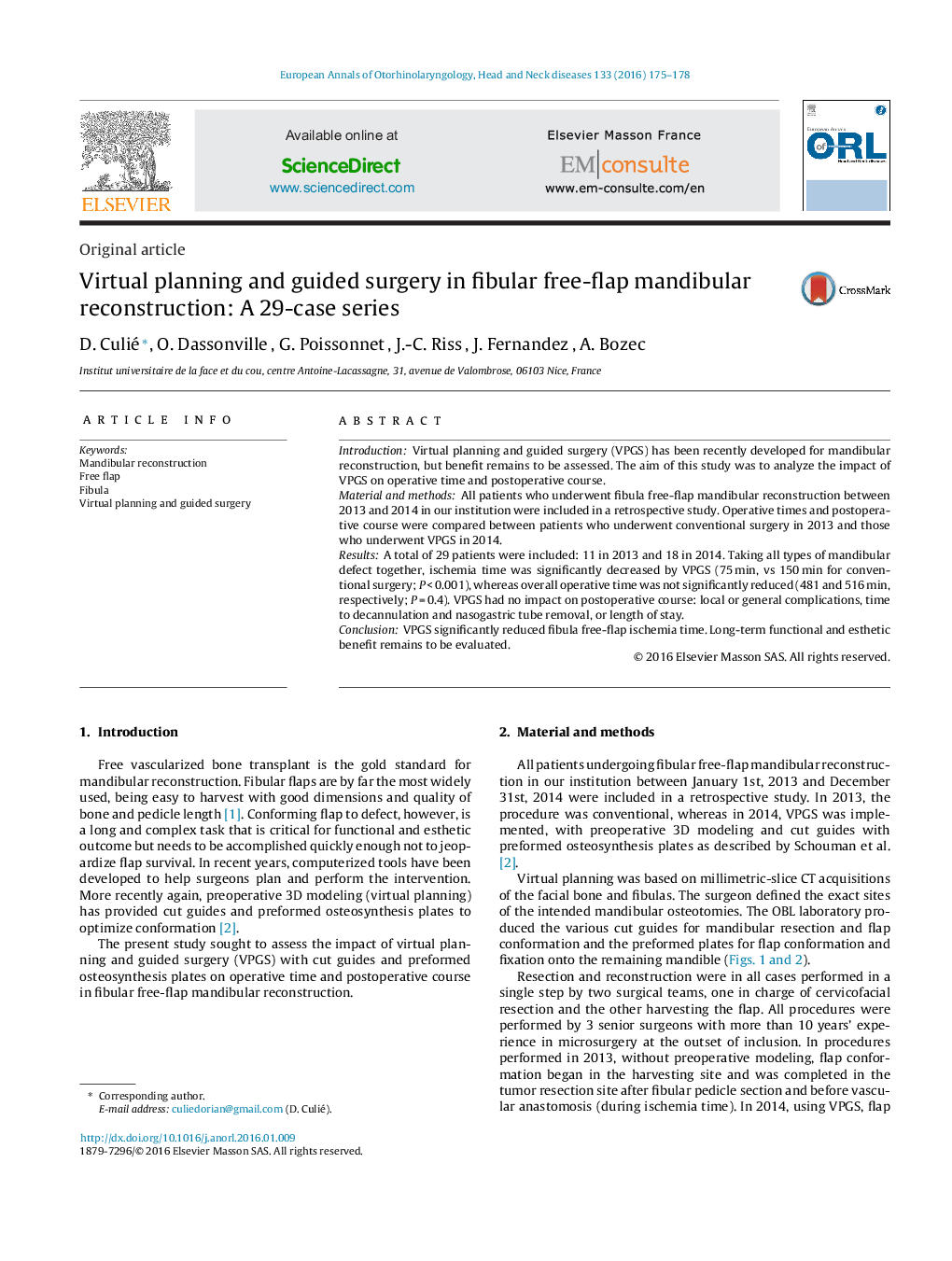| Article ID | Journal | Published Year | Pages | File Type |
|---|---|---|---|---|
| 4109867 | European Annals of Otorhinolaryngology, Head and Neck Diseases | 2016 | 4 Pages |
IntroductionVirtual planning and guided surgery (VPGS) has been recently developed for mandibular reconstruction, but benefit remains to be assessed. The aim of this study was to analyze the impact of VPGS on operative time and postoperative course.Material and methodsAll patients who underwent fibula free-flap mandibular reconstruction between 2013 and 2014 in our institution were included in a retrospective study. Operative times and postoperative course were compared between patients who underwent conventional surgery in 2013 and those who underwent VPGS in 2014.ResultsA total of 29 patients were included: 11 in 2013 and 18 in 2014. Taking all types of mandibular defect together, ischemia time was significantly decreased by VPGS (75 min, vs 150 min for conventional surgery; P < 0.001), whereas overall operative time was not significantly reduced (481 and 516 min, respectively; P = 0.4). VPGS had no impact on postoperative course: local or general complications, time to decannulation and nasogastric tube removal, or length of stay.ConclusionVPGS significantly reduced fibula free-flap ischemia time. Long-term functional and esthetic benefit remains to be evaluated.
